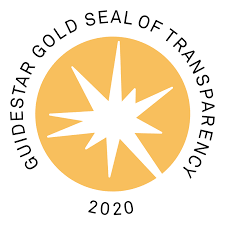Two major Moroccan news sites, Hespress and Al-Qanat, have published articles about Abdullatif Nasser, as the campaign for his transfer home from Guantánamo gathers pace.
You can read the Hespress piece in Arabic here.
You can read the Al-Qanat piece in Arabic here.
Below are condensed translations of the two stories.
Hespress
The case of the last Moroccan detained in the US prison at Guantanamo Bay is ongoing. Hespress received the latest details from his lawyer.
The suffering of Abdullatif Nasser, the last Moroccan at Guantanamo, was renewed in the current mandate of US President Donald Trump.
Following years of torture, deprivation of his legal rights, mental suffering, pain, humiliation and injustice, Trump stopped the procedures for Abdullatif’s transfer to Morocco in 2016, despite the fact that a committee of six US intelligence agencies had determined he could be sent home to the Kingdom, at the end of the term of US President Barack Obama.
In his eighteenth year imprisoned in Guantanamo, the Moroccan detainee says: “A new administration took over a little over a month ago and have introduced new rules and restricted the small freedoms we have in the prison. People are badly affected, and are starting to harm themselves in response – I can think of four or five who have done so just within the last month.”
He cites a hunger strike by a group of detainees as one of the reactions to this administrative change at the notorious prison.
In his meeting with his lawyer, Nasser says he sees that Morocco and the US government are focusing on the Coronavirus, and adds: “The Covid-19 situation is difficult at home, but I would go there right now if I could. I would rather take the risk of getting the virus if it meant I could be with my family than spend another night here! Even if I died after an hour, to be with them for one hour would mean everything.“
In a related context, the British NGO Reprieve published a new video clip about Abdullatif Nasser, noting that he is the last Moroccan imprisoned in Guantanamo, has never been charged with a crime, has been held without trial for 18 years, and that “it is time for him to return to his country.”
Al-Qanat
Al-Qanat obtained testimony from the only Moroccan detainee in the American prison in Guantanamo Bay in Cuba, Abdullatif Nasser, in which he talked about his current situation, expressed his political positions on Morocco, and demanded that the 2016 decision to transfer him to his homeland be implemented. He has been detained in Guantánamo for nearly 18 years since his abduction from Afghanistan.
Nasser told his lawyer at Reprieve that his phone calls between him and his family in Morocco have been suspended. “I think that the matter is related to the Coronavirus situation in Morocco,” he said. “I haven’t been able to talk to my brothers or sisters for a few weeks. But I keep up with the news on television and see what is happening in Morocco.”
Nasser chose to link his case with the deep relations between Morocco and America. “The partnership with Morocco is a strategic alliance for the United States, and has been for a long time,” he said. “Just last year, there was a group involving Congressional representatives who visited Morocco, a cross-party visit. They went there and expressed their friendship for Morocco and the United States. It is because it is the most stable country in the area.”
He added that it is illogical to continue to keep him detained in Guantánamo four years after their decision to let him out: “I understand that everyone is focused on Covid-19 at the moment, but I hope that soon powerful people in Morocco and the US will realise that it is foolish to keep me here, and that completing the transfer that was authorised in 2016 would be a powerful gesture of goodwill between our countries.”
He also spoke about his political position: “Under this King, the ruling family has a relationship with opposing parties and has brought democracy into Morocco. Other countries try to repress their views rather than work with them. Just look at what happened in Egypt, for example.
But Morocco saw what was happening during the Arab Spring, and started working with the other parties to ensure that people’s voices were heard. There are still problems, and many of the measures are symbolic, but it means a lot for people to even have their voices heard. I am always proud to be Moroccan.”
